
On Raising VC Money To Build A DeFi Plus NFT Infrastructure Ecosystem
Hello! Who are you and what business did you start?
Hello! I’m Nacho, Co-Founder of Juggernaut (JGN). I’m from Spain. I found the crypto space while studying for my bachelor’s at the University of Malaga, and I started working in blockchain in marketing and communications. I’ve helped and advised many different projects, like NuCypher or IOST, for example.
I was able to see the transformative power of blockchain and how it can change the world. I knew it was the right time to start Juggernaut.
Juggernaut (JGN) is a complete DeFi plus NFT infrastructure and NFT ecosystem with full BSC compatibility.
DeFi: recreating traditional finance with a decentralized architecture. Make finance more accessible, eliminate third parties, and focus on security and privacy.
NFTs: unique crypto assets that represent digital creations, art, and culture. They can represent a variety of goods such as art, video, music, real estate, news stories, and even tweets.
We are building platforms and technology for other projects to use, new NFT games, collections, and our JGNNFT.com NFT Exchange, with open access to BSC NFTs.
We believe that DeFi and NFTs should be accessible and simple for all. Juggernaut wants to help everyone be part of the DeFi revolution and empower new and interesting asset classes and innovations.
At Juggernaut, we are merging the possibilities of DeFi with NFTs to create something new and exciting.
Once you find a problem, focus on the solution and ignore the noise.
We started very lean, and have grown a lot since then. The price of our token went from $0.1 in the private sale to over $5.6 all-time high. We have received investments from Binance, Goldman Sachs (CA), and Softbank (UK).
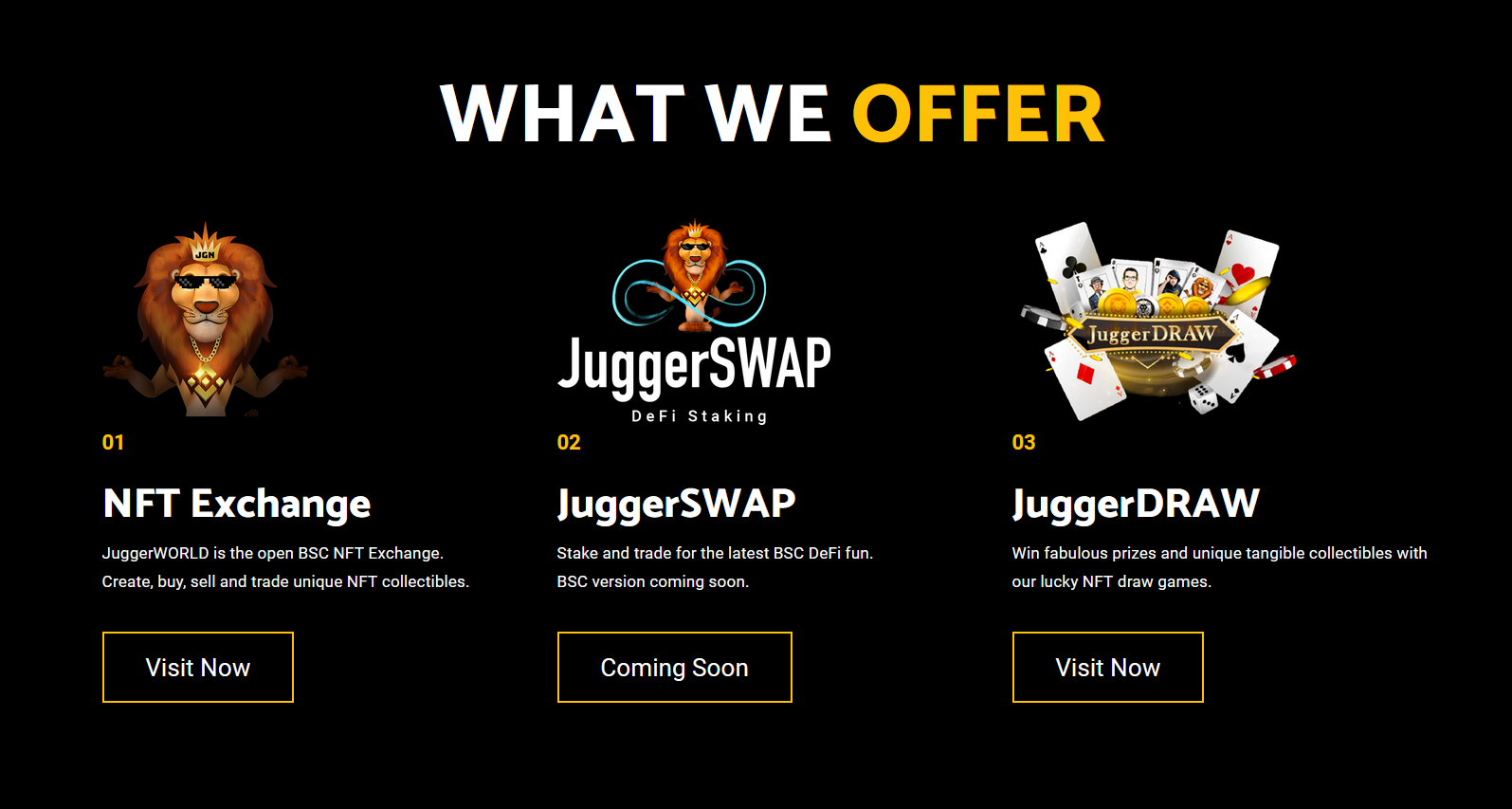
What's your backstory and how did you come up with the idea?
I’ve been working in the cryptocurrency industry for a while, and one thing is very clear: access to new assets and innovations is rather complicated. It is getting better, for sure, especially if you compare the UI/UX of blockchain companies of the past with what we have now, but there’s still a lot of room for improvement.
All JGN team members share a passion for decentralized innovations, and a desire to create easier user experiences and achieve greater mainstream adoption.
At Juggernaut we want to make DeFi and NFTs accessible and simple for all, and help everyone get exposure to new and interesting asset classes and innovations.
However, this idea wasn’t our original idea: we were a B2B synthetic assets project when we started. The great thing about having a lean approach to building stuff is that you can pivot the startup/company until it reaches product-market fit.
We were built on top of Ethereum but quickly found out that the network was too expensive and slow for certain products we wanted to build, so we decided to move our main efforts to BSC (Binance Smart Chain). That was a great idea.
We didn’t know at the time, but BSC was going to explode. New projects, new use cases, and incredible growth! We pivoted into another type of synthetic asset: NFTs.
Basically, NFTs were generating a lot of headlines, and there was an opportunity to focus on NFTs on BSC. We later found out people really wanted to create NFTs in the network, so that’s how our JGNNFT.com NFT Exchange got created.
The last iteration of the project, DeFi + NFT was born because combining both technologies open up a lot of different opportunities, such as blockchain games, trading of crypto collectibles, etc.
Take us through the process of designing, prototyping, and manufacturing your first product.
We have had many different components over the lifetime of Juggernaut (NFT Exchange, Yield Farming Pools, NFT games…), but I think there are some key ideas behind designing products for crypto/blockchain audiences.
The first one is pretty common knowledge in the product management industry: listen to your customer to understand what they are looking for, but do not listen too much to create the solution/product. I think the last part is really important in the crypto space.
Researching the market, talking with users, VCs or big companies related to the blockchain can give you a good idea of what products to create/release, but if you try to ask crypto users for a solution, you will most likely end up mad. There’s too much noise in the space, and too many clichés.
Once you find a problem, focus on the solution, and ignore the noise.
The second key idea is to create a healthy community. Some users will focus 100% on the price of tokens, and not on your product, but that’s normal. Ask the real users that really benefit from what you are doing, and engage in regular and honest conversations with them. There’s nothing worse than a product clearly not working as intended, and community managers telling everyone that no, the project is great. Sometimes the product will have bugs and fail, and that’s how it is supposed to be.
If you want to start a cryptocurrency project, remember that cash is key. Always keep in mind that there could be periods of wild volatility, and times of price depression, when it’s hard to raise capital, and the user base shrinks.
There’s no progress without failure.
The last key idea is security. If you are dealing with decentralized products, audit them regularly, and keep in mind the risks associated with them. Most likely your product will have problems, but try to make sure those problems are not associated with your users losing their funds. That’s a total business killer right there.
Describe the process of launching the business.
I think launching a business gets glorified too much. Some people get petrified with the idea of creating a company because they think that it only belongs to business people, but the reality is that pretty much all businesses are social experiments (unless you are selling stuff to robots?), but with a lot of legal and regulatory parts.
Here we are talking about a digital business, so the start is not as complicated as a typical brick and mortar store. You get an idea, develop a product, create a website, and pray or not, depending on luck and experience.
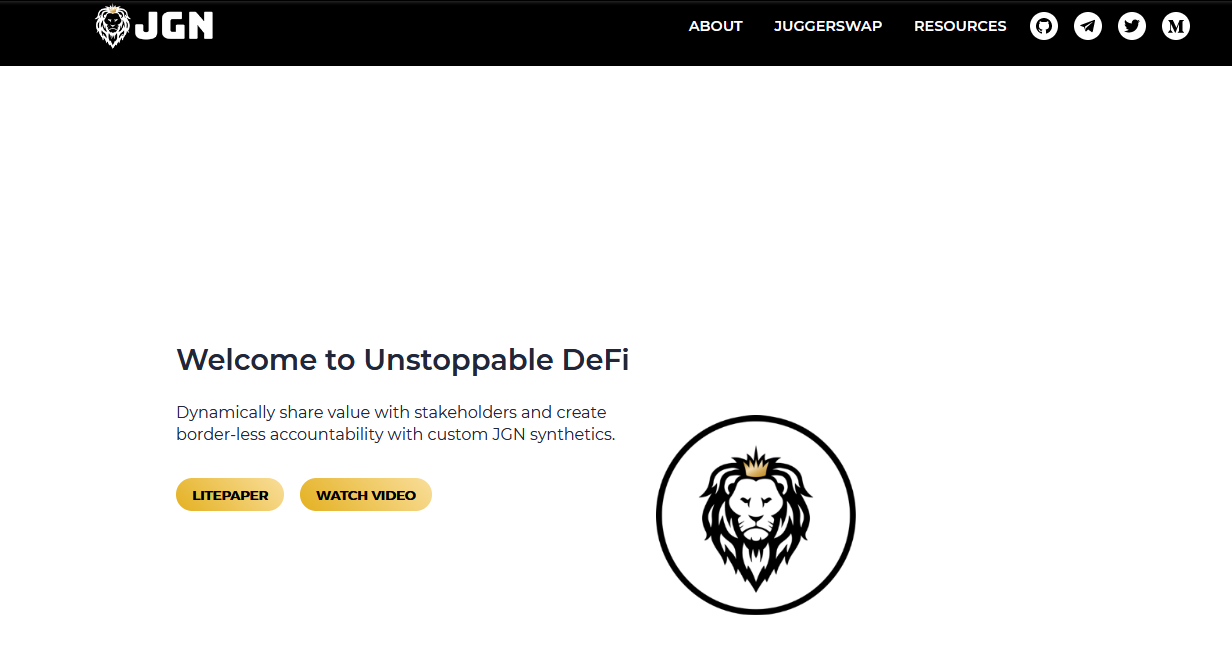
But seriously, the start is exciting and tiring at the same time. No one knows about you, and you are not even ranked on Google. You have to do everything that you can to promote your brand, company, and products.
The launching strategy, on the other hand, is the complicated part. Starting is easy, but making noise is not. At Juggernaut, first, we shared our vision/mission, team members, and advisors, and then released our first product: a staking platform called JuggerSwap.
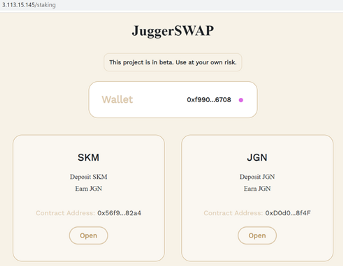
Then we raised capital from VCs, listed on Gate.io, and raised a small IEO of $150,000. I think we have used that capital very wisely, considering the huge impact we have been able to make in the crypto space.
Since launch, what has worked to attract and retain customers?
In crypto, you need to have a clear understanding of what attracting and retaining customers looks like. The motivations of users that find you and the ones that stay are different but equally important.
To attract people to the blockchain, you need to have a clear story and a global vision. Think of crypto users as investors on steroids: they don’t want “normal” returns, they want the type of projects that can change the world, and make something big and noisy.
Some people are only interested in the price of your cryptocurrency, while others in the vision that you have.
To retain customers/users/community members, you have to show 100% commitment, time, and effort. Even if some community members complain, they know if the team is working hard/efficiently, because the results are there.
We have made a lot of marketing efforts to attract and retain users. The most effective ones I can think of are the ones that provide real users, and the cost is less than the value that they bring. This might seem pretty obvious, but in the cryptocurrency space, some projects think that spending $50,000 on a YouTube video is a wise investment.
The most effective promotions have been with influencers and participating in online events, such as AMAs or Panels.
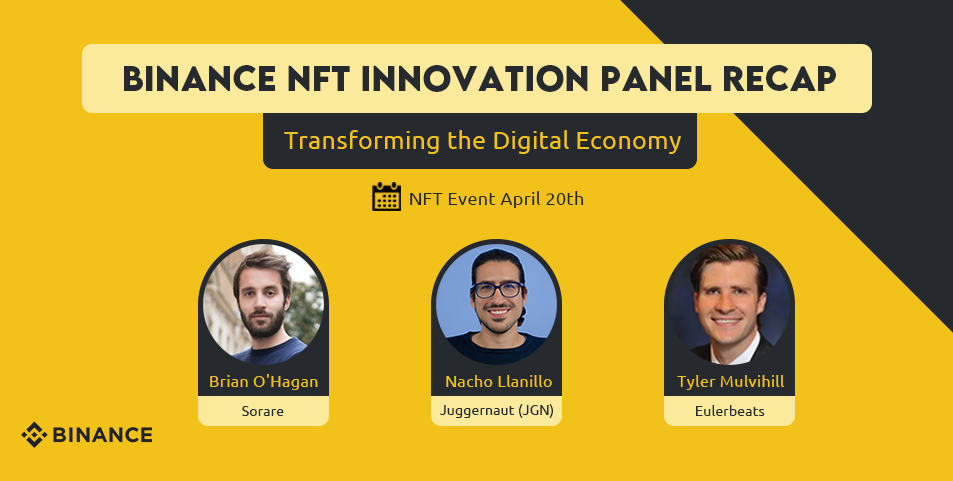
How are you doing today and what does the future look like?
We are doing great! We have 37.4k followers on Twitter and 28,900 members on our Telegram channel. We have received investments by Binance, Softbank (UK), and Goldman Sachs (CA).
We have partnered with top-tier crypto projects such as PancakeSwap and Chainlink to develop cool tech together. We continue to develop our products: NFT games, Staking (coming soon), and our NFT Exchange, JGNNFT.com.
Our token price went from $0.1 in private sales to an ATH of $5.6, which shows how amazing community support and trust we have behind.
Our future looks even better. We have plans to release new technology that’s going to change the NFT game forever, we are exploring different IPs (intellectual properties) to launch something together in the NFT space, and we will release our new BSC staking soon (the community is really excited about this!).
Through starting the business, have you learned anything particularly helpful or advantageous?
The key concept to start a business is velocity: if you lose momentum, the new company is going to struggle in everything (raising money, developing a new product, acquiring customers).
You need to move fast, and marketing is not evil. If no one learns about your company, the business is dead. If you don’t generate either profit or hype, you will burn all your money and not achieve results.
If you want to start a cryptocurrency project, remember that cash is key. Always keep in mind that there could be periods of wild volatility, and times of price depression, when it’s hard to raise capital, and the user base shrinks.
Luck matters, skill matters, preparation matters. Timing is also very important and can be considered almost a skill, as you have to learn to analyze many different types of variables.
What platform/tools do you use for your business?
Don’t overcomplicate things. Most businesses are still run through old software, and that’s ok. It’s about the organization, not specific tools.
If you start thinking about all the tools available in the market today you can be overwhelmed pretty quickly:
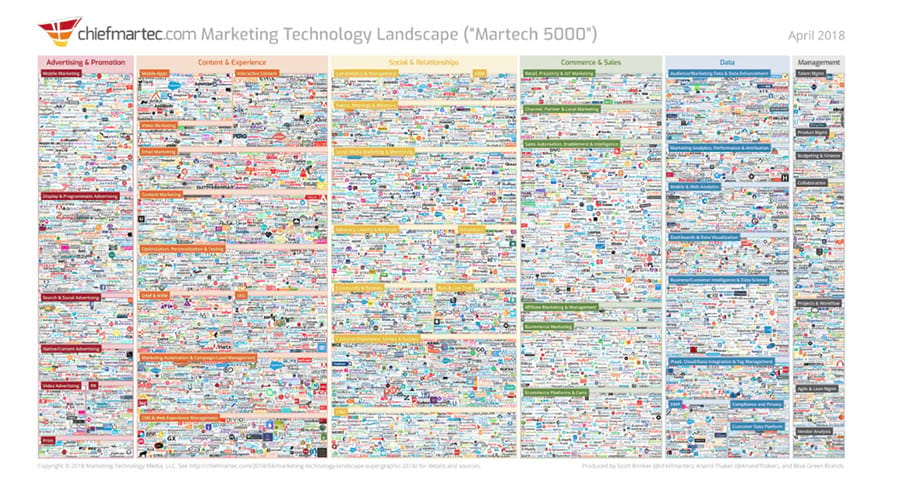
But keep in mind, those tools are there to help you focus on what’s important, and that comes back to the basics: focus on the solution, work hard, and ignore the noise.
To be honest a lot of marketing/productivity/messaging platforms out there sometimes can make you feel like you can’t do business without high-tech solutions, and that’s not true at all.
You can run multi-million dollar businesses with just Whatsapp and Email, or even a paper and pen. Most financial models in the world are done through old & reliable spreadsheets.
However, I have to say that technology (especially the cloud) makes processes simpler, but it’s not a good idea to rely on specific tools (what happens if they run out of business, or upgrade their conditions?).
There are hundreds of lists of tools better than the one I could do here, but remember to not waste too much time thinking you need to have something ultra-complicated to do business.
Here is a list of very important things that can help you get organized (from a very disorganized person):
Digital file storage. Seriously, something as simple as having the files on your computer organized can save you a lot of headaches. I try to follow a simple system used in consulting with the files named from 00 to 99 (most important to access at the top, less important at the bottom). If you do a presentation/spreadsheet/document, only keep the most recent version for easy access, and make a sub-folder of all the other old versions, comments, and edits.
Personally, I also like to create a new folder each day of the month, with the date on it. It allows me to focus on what I need to do on a specific date, and I can find specific files easier. It also works great to see how much you are doing each day and how far you have come.
Legal documents. You should keep physical legal documents stored in a safe place that’s easily accessible, and keep encrypted digital copies of them, just in case.
Brand documents. If you have an incredible memory, that’s great, but for me, I like to have all the documents I’ve made about the business stored in the same place, so in case I need to write a blog post, make a tweet, or participate in an event, I can keep the tone and brand consistent. Sometimes you don’t have enough time to write new stuff every day, so it comes in handy to have something already written that you can copy and paste.
Graphics. It may be the crypto space, but everywhere you go, people ask you for the project’s logos, main images, products, photos, etc. They usually ask in different sizes and resolutions, so having an organized system for that can be life-saving.
Must-haves. I would consider a calendar and a cloud storage solution a must-have for any (digital) business. Also good headphones, mic, and camera. Pen and paper for online meetings; do not type on your keyboard, it’s very loud (I own a mechanical keyboard, I have made this mistake so many times).
Here are the tools I use for work:
- Google drive
- Google calendar
- Dropbox
- Slack
- Trello
- Notion
- Telegram
- Photoshop
- Microsoft Office: Word, Excel, PowerPoint
- Gmail
- Paint (useful for quick screenshots)
- Adobe Acrobat
- All online meeting apps (just in case): Zoom, Teams, Discord, etc.
- Crypto apps & wallets
What have been the most influential books, podcasts, or other resources?
I have found two books to be pretty helpful when it comes to creating a business:
- How to win friends and influence people, by Dale Carnegie: cheesy title, invaluable advice about personal and professional relationships.
- Never split the difference, by Chris Voss: written by a former international hostage negotiator at the FBI, it teaches about negotiation in all aspects of life.
I enjoy hearing founders and venture capitalists talk on YouTube or podcasts because they offer a variety of perspectives that are really important when starting a business.
YouTube has incredible content for free. Sometimes it can be hard to find because of their algorithm pushing cats or funny videos (not complaining tho), but I would suggest looking for real business advice from real founders (been there, done that type of thing). YCombinator videos are a goldmine.
Advice for other entrepreneurs who want to get started or are just starting?
Just do it. For most people, the risk of starting something is very low. The real impediment of starting a business for almost everyone is the fear of failure, but you have to keep in mind that failure is part of life, and you can fail in pretty much any context and situation, not just in business.
Think about the 90-year-old you: would you regret starting, or would you much rather regret not trying? That’s on you to decide.
Disregarding personal situations, motivations, and experience is toxic. Startups, when you are 50 with 2 kids, are different from startups when you are 20 with no mortgage and no debt. Keep in mind your situation at all times.
You shouldn’t put your life into a financial crisis if this doesn’t go well, but the risk tolerance is different for everyone.
I personally knew that there was no risk for me to start in crypto: I was 22, fresh out of college, and with no debt. My situation is not your situation, but that should not scare you into thinking you can’t do it, because you can. It might take some time, it can be exhausting, but the experience is well worth it in the end. Besides, the average age for successful entrepreneurs is 45:
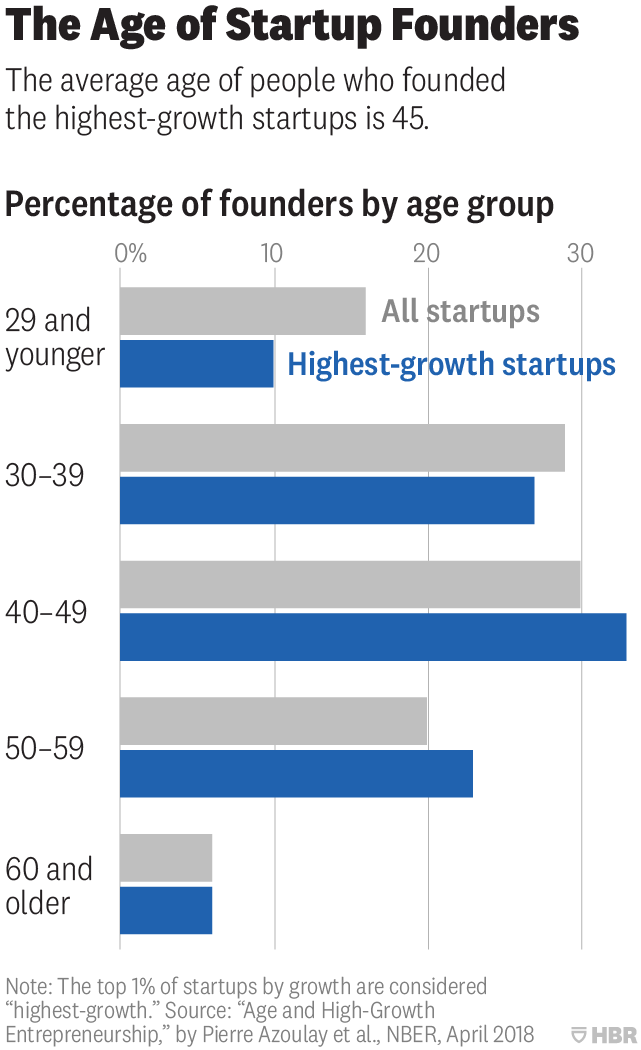
I’m 26 now, and the worst scenario is that Juggernaut (JGN) fails in the end. Of course, my journey has been successful so far, so I’m more inclined to tell people that they should try, so take everything with a grain of salt.
That being said, I would say that for people that are thinking about creating a company/startup, they are already half the way in. Not everyone has that mentality, so I would suggest trying for those who think this can be fun and challenging.
The only characteristic required is the desire to do something and solve a problem. Most successful founders are great at being focused on something. I still have a lot to learn on that front, but you can start one step at a time!
Are you looking to hire for certain positions right now?
At the moment we have pretty much everything covered, but feel free to send us your CV/Experience/Work/Past projects at [email protected] if you like what we are doing and want to be part of our community.
If you are interested in the cryptocurrency space in general and want to create something exciting someday, feel free to reach to me directly at [email protected]
Where can we go to learn more?
If you have any questions or comments, drop a comment below!

Download the report and join our email newsletter packed with business ideas and money-making opportunities, backed by real-life case studies.

Download the report and join our email newsletter packed with business ideas and money-making opportunities, backed by real-life case studies.

Download the report and join our email newsletter packed with business ideas and money-making opportunities, backed by real-life case studies.

Download the report and join our email newsletter packed with business ideas and money-making opportunities, backed by real-life case studies.

Download the report and join our email newsletter packed with business ideas and money-making opportunities, backed by real-life case studies.

Download the report and join our email newsletter packed with business ideas and money-making opportunities, backed by real-life case studies.

Download the report and join our email newsletter packed with business ideas and money-making opportunities, backed by real-life case studies.

Download the report and join our email newsletter packed with business ideas and money-making opportunities, backed by real-life case studies.



















